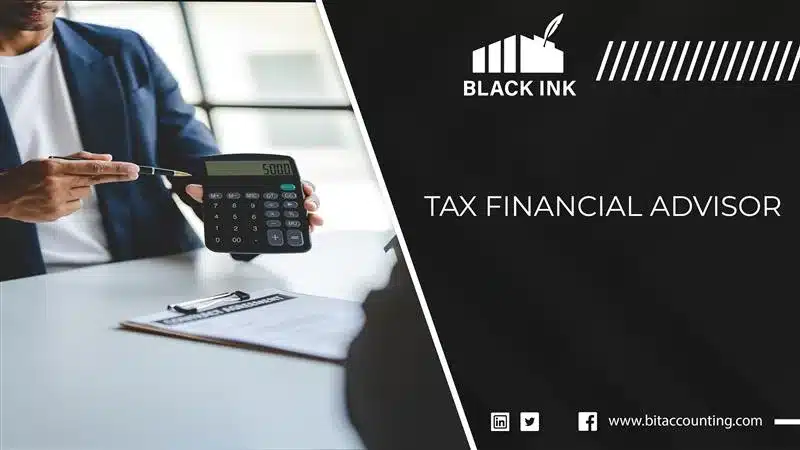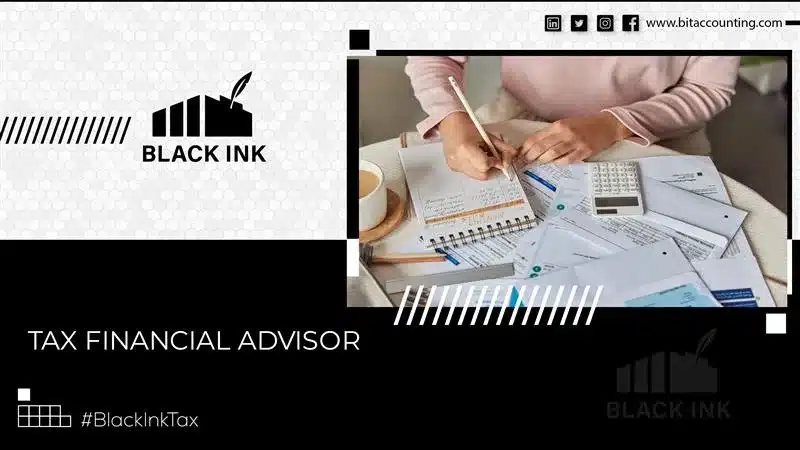
Table of Contents
How to Find the Best Tax Financial Advisor? Complete Guide 2025
Let’s face it: taxes are about as fun as stepping on a LEGO in the dark.
But finding the right tax financial advisor? That can be a game-changer—not just for your sanity but also for your wallet.
So, whether you’re drowning in 1099s, juggling freelance gigs, or trying to avoid a tax-time breakdown, this guide will help you find out the perfect tax pro and you know where to go obviously BitAccounting.
First Things First: What Even Is a Tax Financial Advisor?
Think of a tax financial advisor as your GPS through the tangled jungle of tax forms, deductions, and scary IRS acronyms.
They do more than just plug numbers into TurboTax. A good advisor will:
- Help you legally pay less tax (the goal, right?),
- Keep you IRS-compliant (so you can sleep at night),
- Guide your investments and income strategy with taxes in mind.
Whether you’re a business owner, a freelancer, or someone who just doesn’t want to mess up their return, this person is your go-to.
Wait—Do I Really Need a Tax Advisor?
Well, that depends. Ask yourself these 5 questions:
- Did you start a side hustle or launch an LLC?
- Own stocks, crypto, or investment properties?
- Got married, had a baby, or inherited money?
- Running a business that’s more than a lemonade stand?
- Ever Googled “how to file taxes after getting paid in Dogecoin”?
If you said “yes” to any of those, then yeah—you probably do.
But Which One Is Right for You?
There’s no “one-size-fits-all” when it comes to financial professionals.
The best tax advisor for you depends on where you are in your financial journey.
Here’s a quick cheat sheet:
| Situation | Best Fit |
| Own a business or real estate | CPA or EA |
| Dealing with the IRS or legal trouble | Tax Attorney |
| Investing long-term and saving for retirement | Financial Advisor w/ tax focus |
| Got audited or owe back taxes | EA or Tax Attorney |
Wait What? – There Are More Than One?
Yes, there are more than one tax advisors, because the market is filled with customer with different needs and one person can’t possibly fix everything, that’s why there are different types of tax advisors:
Certified Public Accountant (CPA)
The Beyoncé of tax professionals. CPAs are licensed, tested, and basically born to balance books.
They help with:
- Tax prep & filing
- Audit protection
- Business accounting & payroll
- Long-term planning
Its best for small business owners, self-employed folks, and anyone who doesn’t want to mess around with IRS mistakes.
Enrolled Agent (EA)
These folks are federally licensed and often former IRS employees.
They eat tax codes for breakfast.
If you’re facing a letter from the IRS that gives you heart palpitations—call an EA.
Best for: Handling IRS notices, audits, and complex tax filings.
Tax Attorney
When taxes get legal, it’s time to call the big guns.
They’re law school grads who specialize in tax litigation and strategy.
Best for: Estate planning, tax disputes, offshore accounts, or legal structuring of your business empire.
Tax Financial Advisor
Not every financial advisor knows tax—but the good ones should.
They help you grow your money in a smart, tax-savvy way.
Best for: Wealth management, investments, retirement planning, and avoiding the pain of capital gains.
So… How Much Will This Cost Me?
No need to make it obvious, we are talking about taxing here, you would know by now nothing comes for free, even if you are doing it yourself (DIY), Let’s talk real numbers, shall we?
- CPA: Around $250 to $600+ for a standard tax return. Add more zeroes if you’re running a business or need fancy forecasting.
- EA: Typically, $100–$400/hour, depending on the complexity.
- Tax Attorney: $200–$1,000/hour (yeah, they’re lawyers).
- Financial Advisor: Either a flat fee, an hourly rate, or a percentage of assets managed (usually ~1%).
You know what’s best? Ask up front, because no one likes surprise invoices, and it leaves a bad impression.

Tax Advisor vs. Accountant: Wait, Aren’t They the Same?
Nope. And here’s why:
| Tax Advisor | Accountant |
| Specializes in tax strategy, planning, and filings | Manages financial books and statements |
| Can help you save on taxes | Helps with record-keeping, payroll, etc. |
| Might be an EA, CPA, or tax attorney | Usually a CPA or bookkeeping pro |
In short: accountants track your money. Tax advisors help you keep more of it.
6 Steps to Find Your Perfect Tax Financial Advisor
It’s about time the main element has arrived,
Step 1: Get Clear on What You Need
- Want help with taxes only? Look for an EA or CPA.
- Want tax-smart investment advice? Get a financial advisor with a tax planning background.
- Planning your retirement, estate, or wealth transfer? Go for the long game.
Step 2: Check Their Credentials (Don’t Skip This!)
Make sure your advisor is legit. Look for:
- CPA (Certified Public Accountant)
- EA (Enrolled Agent)
- CFP (Certified Financial Planner)
- JD (for Tax Attorneys)
Use the IRS Directory, FINRA BrokerCheck, or the SEC database to vet them.
Step 3: Choose the Right Service Type for Your Style
Robo-Advisors
- Automated, cheap, and fast.
- But not great for complex tax situations.
Online Financial Services
- Think: Zoom calls + downloadable reports.
- Great for millennials, tech-savvy folks, or budget-conscious freelancers.
Traditional Advisors
- Good ol’ face-to-face. More expensive, but often worth it if your finances are complicated.
Step 4: Know Your Budget
Be honest with yourself:
- Want to DIY with light advice? Maybe a robo-advisor + EA combo works.
- Need full-service help for a 7-figure business? You’ll want a CPA or financial advisor with deep experience (and yes, it’ll cost more).
Step 5: Vet, Stalk, Interview (Politely)
Before you hire:
- Google them. Read reviews.
- Ask for references.
- Schedule a discovery call and ask, “How do you approach tax strategy for clients like me?”
If they can’t explain their process without jargon, run.
Step 6: Seal the Deal
Once you’ve found your match:
- Get everything in writing (especially the fees).
- Schedule regular check-ins—not just during tax season.
- Keep asking questions. This is your money, after all.
Now finally, (If you followed the steps correctly) you are with a perfect tax advisor who will clarify all your needs.
Final Thoughts: Your Money Deserves Better
Don’t settle for a once-a-year tax person who just fills out boxes and waves goodbye.
A great tax financial advisor will walk with you throughout the year, helping you plan, save, and grow with confidence.
So go ahead, ask questions, shop around, and find someone who doesn’t just “do taxes” but actually understands your life and your money.
Frequently Ask Questions:
Q1: Can I deduct the cost of a tax advisor on my taxes?
If you’re self-employed or running a business—yes! Personal tax prep fees? Not so much anymore. Thanks, 2017 Tax Cuts and Jobs Act.
Q2: Should I meet with my advisor more than once a year?
100%. Taxes happen in April, but planning happens year-round.
Q3: What’s the difference between fee-only and fee-based advisors?
- Fee-only = paid only by you. Fewer conflicts of interest.
- Fee-based = might earn commissions, which could bias their advice.
Q4: What do I bring to the first meeting?
- Last year’s tax return
- A list of financial goals (e.g., buy a house, retire early, expand a biz)
- Any investment or income info
- A notepad—you’ll want to take notes!
GET FREE QUOTE FOR ALL OF OUR SERVICES
Black Ink will send you a free analysis of your current state and what would be the cost of managing either a separate accounting and bookkeeping services or a complete solution across New York, USA. Do get in touch and we will be happy to consult you with our bookkeeping services in NY, New York, USA.
